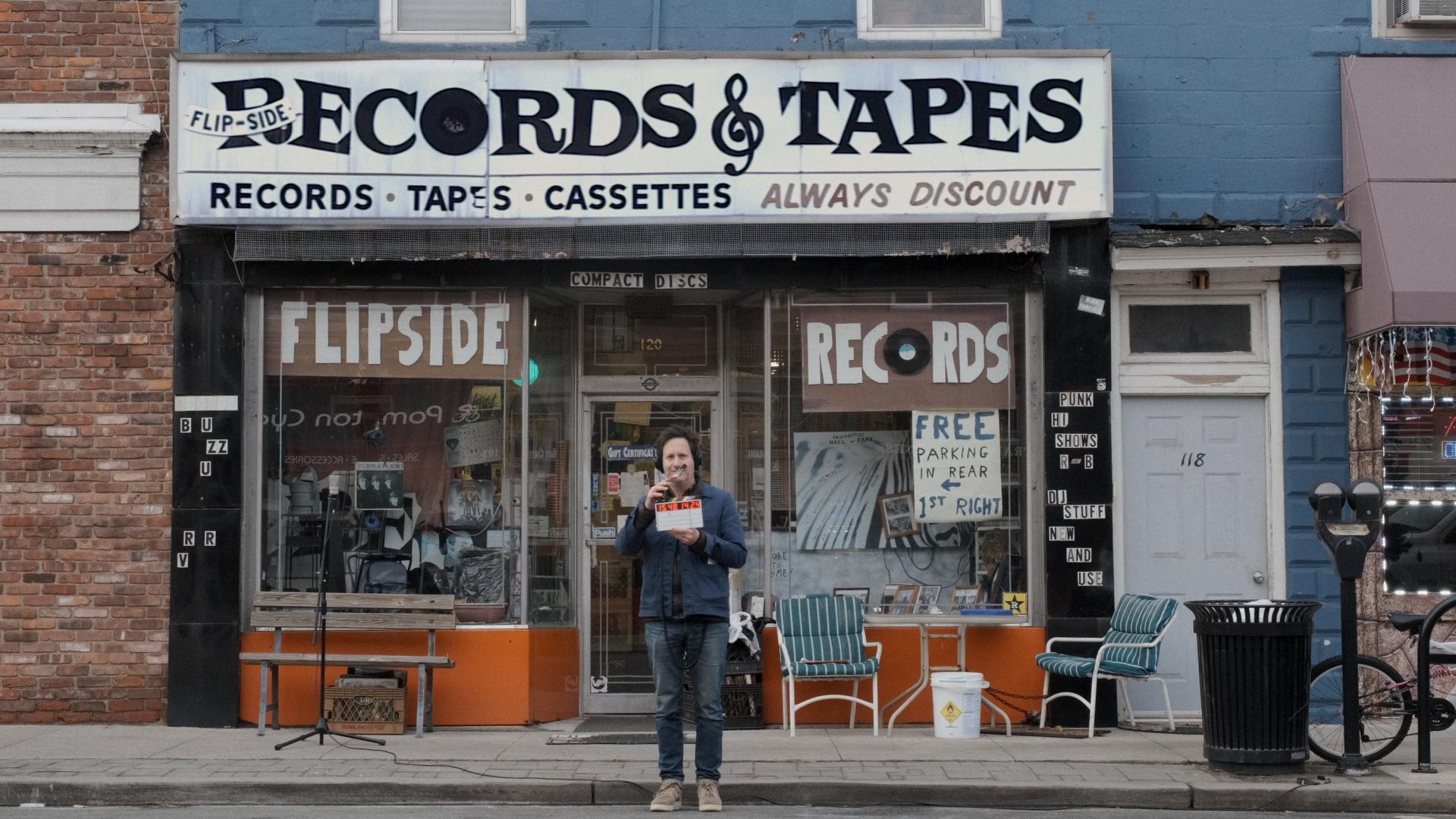Flipside review: A poignant self-portrait of a filmmaker’s midlife crisis
Chris Wilcha weaves the loose threads of his abandoned projects into a documentary greater than the sum of its parts
Film Reviews Flipside
You don’t have to be of a certain age to appreciate everything Chris Wilcha sets out to do in his new documentary Flipside, but it certainly helps. The way this project speaks to the Gen X experience, especially if you’ve ever thought of yourself as an artist, is so specific it almost feels like an attack. To be clear, that’s a compliment. Even the title of the film, which it shares with the vintage New Jersey record store heavily featured in it, evokes that point in life when you realize there’s more behind you than there is ahead. It’s not that the film’s message will be opaque to anyone outside of Wilcha’s generation—it also deals with universally relatable concepts like regret and the desire to leave your mark on the world—it’s just that the director’s journey to reconcile the idealistic, ambitious kid he once was with the 50-something man he’s become will resonate more deeply with those who are also in a place to take stock of their own lives.
In a way, Flipside is the perfect bookend to Wilcha’s debut film, The Target Shoots First, a documentary he made in the ‘90s while working in the marketing department at Columbia House Record Club. At the time, Wilcha was fresh out of college and grappling with ideas like artistic integrity, selling out, and the dehumanizing culture of corporate America. The film became a hit on the indie festival circuit and went on to win awards and open doors, but Wilcha would spend the rest of his career chasing that early success.
Not that he completely failed to make a living as a director. He made a behind-the-scenes featurette for Judd Apatow’s 2009 comedy Funny People, worked on two seasons of the TV version of This American Life, and started a handful of other documentary projects that he never completed. With a growing family and no stable income to rely on, he paid the bills by taking on a few commercial gigs here and there. Before he knew it, the side hustle became his real job, and he’d racked up more than a hundred ads promoting the corporate behemoths he once reviled. Flipside is Wilcha’s attempt to bring his life’s work full circle, a return to the personal self-reflection of The Target Shoots First, with the distance and hindsight that 25 years of life experiences will give you.
It’s not as navel-gazing as it sounds. To make his broader point, Wilcha incorporates footage from his abandoned documentaries and even returns to some of his former subjects in search of some kind of closure. One such subject is the aforementioned record store, a cluttered and overstuffed time capsule of pre-internet nostalgia owned by a guy named Dan who doesn’t seem inclined to sell any actual records. He resists all efforts to clean up or modernize the shop, even when a bookstore a few blocks away pivots to used vinyl and threatens to poach what little business he has left. Wilcha actually worked in the store as a teen, and has a strong emotional connection to it, so it serves as an effective thematic link to his exploration of art, mortality, legacy, and the identities we build around the ephemera of the past. Flipside is a lesson in learning to let go.
Larger-than-life characters like Apatow (who served as an executive producer on the film), Ira Glass, David Milch, jazz photographer Herman Leonard, former cable access host Uncle Floyd, and Wilcha’s own parents add color as they flit in and out of the narrative. And make no mistake, though this documentary may be a collection of seemingly random threads, there is a cohesive narrative here. It’s the story of the second coming-of-age, when you start shifting your gaze from the future to the past. Wilcha acknowledges that his idealism has been replaced with realism, his ambition with complacency. He stares down his younger self and resists the temptation to flinch. You’re left with the sense that his entire career—with all its starts, stops, and disappointments—has been leading up to this very moment and this revelatory film.